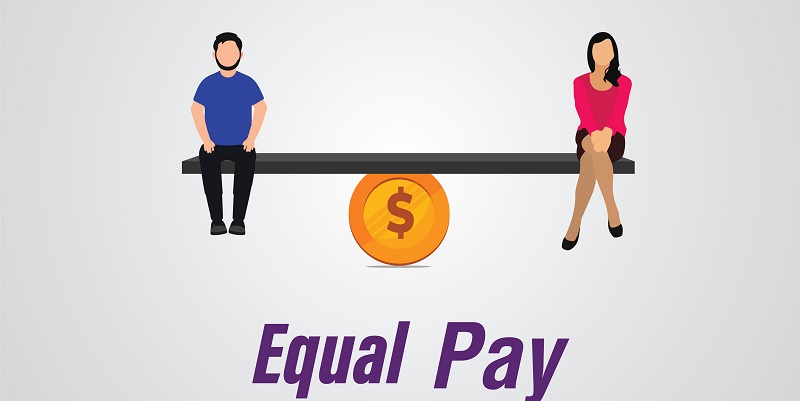Equal pay is an ongoing issue that has gained traction in recent years as people have become more aware of the persistent gender pay gap. The gender pay gap refers to the difference between the average earnings of men and women in any given industry or company. In the UK, the government introduced legislation that requires companies to report on their gender pay gap each year. Nevertheless, recent research conducted by recruitment firm Robert Walters showed that over half (51%) of UK organizations have never completed an equal pay audit. This article will discuss why this is important, the significance of understanding the gender pay gap, and how pay transparency can help to encourage equal pay.
Half of UK Organizations Have Never Completed an Equal Pay Audit
The research by Robert Walters revealed that more than half of the UK organizations surveyed had never conducted an equal pay audit. Equal pay audits are vital in ensuring that companies pay equal salaries to their male and female employees, and they can help identify the root causes of the gender pay gap. It is concerning, therefore, that such a significant proportion of companies have never conducted them.
Importance of Understanding the Reason Behind the Gender Pay Gap
Jemima Olchawski, Chief Executive of the gender equality charity – the Fawcett Society, pointed out that while reporting on the gender pay gap is a legal requirement, employers should go further to find out what is causing it. Pay gaps will only be closed when employers understand why they exist and commit to acting accordingly. Understanding why pay gaps exist is key to closing them, and it is crucial that companies conduct equal pay audits to identify the underlying causes of the gender pay gap within their organizations.
Pay Audits as a Key Part of the Solution
As mentioned earlier, conducting equal pay audits is essential to addressing the gender pay gap. It highlights areas where pay discrepancies may exist and allows companies to make adjustments to ensure their remuneration policies are fair. Pay audits are a key part of the solution, and it is disappointing that over half of the organizations polled have never carried one out. To address this, companies need to take a proactive approach to measuring and reviewing the salaries and bonuses paid to their male and female employees.
Robert Walters’ research also found that only 12% of survey participants said they publish salary ranges for employees to see. This lack of transparency makes it difficult for employees to know whether they are being paid equally. Rameez Kaleem, founder and managing director at 3R Strategy, said pay transparency would help encourage equal pay and improve employee relations. When there is transparency about pay, employers create a greater emphasis on fairness and equity.
Pay Transparency Can Encourage Equal Pay
As mentioned earlier, pay transparency can help to encourage equal pay. Employees who are aware of the salary ranges in their company are in a better position to negotiate for equal pay. Additionally, companies will be more cautious about setting unequal salaries. A lack of transparency or unclear remuneration policies can create the impression that a company is not paying fairly. This can lead to employee dissatisfaction, low morale, and high staff turnover.
Emphasis on Fairness and Equity Through Transparency
When a company is transparent about its pay processes, there is a greater emphasis on fairness and equity. By publishing salary ranges, companies show that they are committed to paying fairly. This emphasis on fairness, equality, and transparency can have a positive impact on employees.
Companies’ Explanation for Not Publishing Salary Ranges
Some companies might argue that they cannot publish salary ranges because effective communication is needed before sharing that information. While this is understandable, there are various ways in which companies can communicate salary ranges to their employees, ranging from meetings with HR to publishing salary reports.
The Importance of Consistent Pay Structure in HR Teams
HR teams need to use a consistent pay structure when determining compensation to avoid worsening pay gaps. Companies need to ensure they are using the right metrics to determine salaries, and that all employees are measured against these standards. Consistency guarantees that gender does not affect salary outcomes.
Equal Pay Audits as a Suggested Risk Assessment Tool
Finally, while carrying out equal pay audits is not a legal requirement, it is recommended that companies complete them every three years to ensure that there are no equal pay risks and that necessary adjustments are made to ensure fairness. Equal pay audits are a way of measuring a company’s performance and effectiveness in managing equal pay issues.
In conclusion, equal pay remains a significant issue without a clear solution. However, the importance of conducting equal pay audits, publishing salary ranges, being transparent about pay processes, and having a consistent pay structure in HR teams cannot be overstated. Companies should work towards improving staff morale, increasing employee retention, and ultimately enhancing their reputation as a fair employer in order to achieve greater gender balance. Gender pay gaps can and should be addressed through increased awareness, more transparent remuneration policies, and the attention of senior management to the issue.

